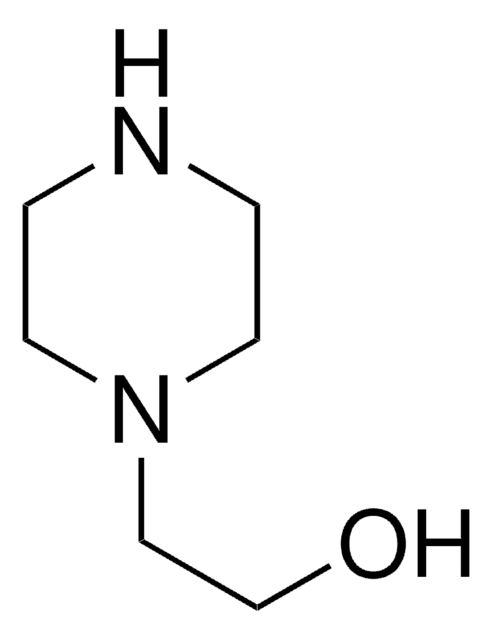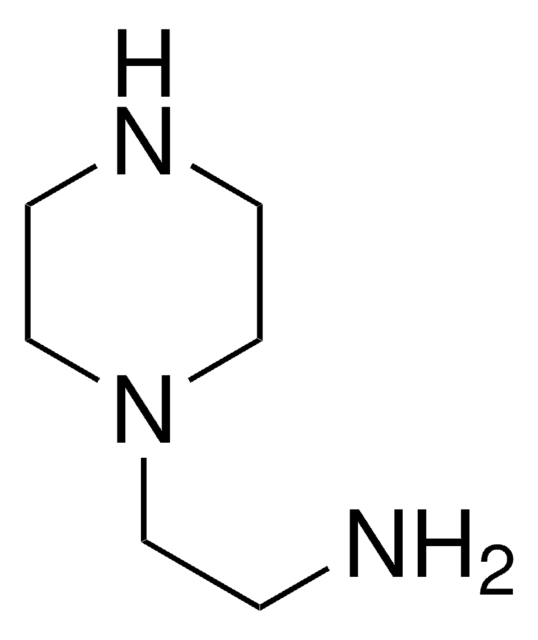127582
N-(2-Hydroxyethyl)ethylenediamine
99%
Synonyme(s) :
2-(2-Aminoethylamino)ethanol, N-(2-Aminoethyl)ethanolamine
About This Item
Produits recommandés
Densité de vapeur
3.6 (vs air)
Niveau de qualité
Pureté
99%
Indice de réfraction
n20/D 1.485 (lit.)
Point d'ébullition
238-240 °C/752 mmHg (lit.)
Densité
1.03 g/mL at 25 °C (lit.)
Groupe fonctionnel
amine
Chaîne SMILES
NCCNCCO
InChI
1S/C4H12N2O/c5-1-2-6-3-4-7/h6-7H,1-5H2
Clé InChI
LHIJANUOQQMGNT-UHFFFAOYSA-N
Vous recherchez des produits similaires ? Visite Guide de comparaison des produits
Application
- A precursor in the synthesis of room-temperature ionic liquids, acetate and formate ammonium salts of N-(2-hydroxyethyl)-ethylenediamine.
- A ligand in the preparation of polymeric cyano-bridged platinum(II)complexes, ligand-copper(II)carbohydrate complexes and cyano-bridged Ni-Pt and Cu-Pt coordination polymers.
It can also be used to study the aerobic biodecomposition of amines in hypersaline wastewaters.
Mention d'avertissement
Danger
Mentions de danger
Classification des risques
Eye Dam. 1 - Repr. 1B - Skin Corr. 1B - Skin Sens. 1 - STOT SE 3
Organes cibles
Respiratory system
Code de la classe de stockage
6.1C - Combustible acute toxic Cat.3 / toxic compounds or compounds which causing chronic effects
Classe de danger pour l'eau (WGK)
WGK 1
Point d'éclair (°F)
291.2 °F
Point d'éclair (°C)
144 °C
Équipement de protection individuelle
Faceshields, Gloves, Goggles, type ABEK (EN14387) respirator filter
Faites votre choix parmi les versions les plus récentes :
Déjà en possession de ce produit ?
Retrouvez la documentation relative aux produits que vous avez récemment achetés dans la Bibliothèque de documents.
Les clients ont également consulté
Notre équipe de scientifiques dispose d'une expérience dans tous les secteurs de la recherche, notamment en sciences de la vie, science des matériaux, synthèse chimique, chromatographie, analyse et dans de nombreux autres domaines..
Contacter notre Service technique
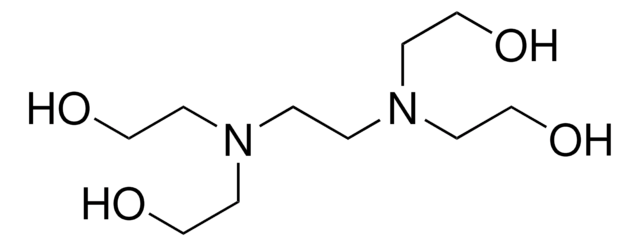





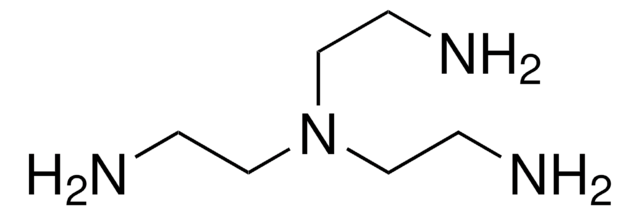
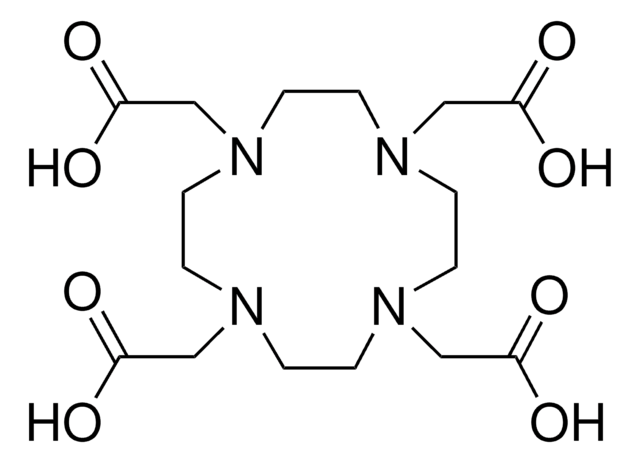





![1-[N,N-Bis(2-hydroxyethyl)amino]-2-propanol 94%](/deepweb/assets/sigmaaldrich/product/structures/219/539/52108f19-e9a0-4987-b605-9969a5cc720d/640/52108f19-e9a0-4987-b605-9969a5cc720d.png)
